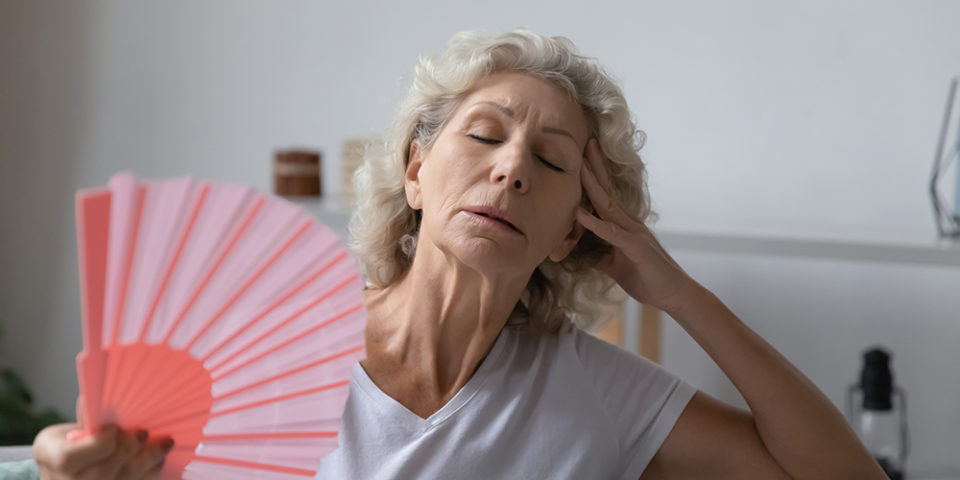Heat-related injuries in older adults: What you need to know
The South swelters every summer, but when temperatures reach triple-digits, the effects of sustained hot weather can be dangerous. Older adults and the elderly are particularly vulnerable to severe heat injuries or even heat-related death.
Geriatrician Rachelle Gajadhar, MD, explained why the elderly are more prone to heat-related injuries and how to stay safe in the summer heat.
Are older adults more prone to heat-related health problems?
“Adults 65 years of age and older struggle to adjust to temperature changes,” said Dr. Gajadhar. “They don’t sweat as much, which means their bodies struggle to cool down naturally.”
On top of that, as we age, we tend to be less aware of thirst and often become ‘cold-natured’ or tend to feel colder than we truly are. Between that and an often-lessened mobility, the elderly may not only be more prone to heat exhaustion and other heat-related injuries but may have a more difficult time moving to safer, cooler places.
Do existing health issues make you more likely to get sick in hot weather?
“There are a few risk factors for heat injuries in older adults that make a more severe reaction more likely,” said Dr. Gajadhar. “One of these is memory loss or dementia, which can lead to difficulty expressing discomfort or telling friends, family and loved ones that they feel too hot or don’t feel well.”
Older adults are also more likely take ongoing medications for conditions like high blood pressure, diabetes and heart disease. Many of these medications can cause dehydration, making heat-related injuries more likely and potentially more severe.
Check on those who are at risk for heat-related illness or injury
“The CDC strongly advises that you should frequently check on the people in your life and community who are at risk for heat-related injury or even death,” said Dr. Gajadhar. “Text or call daily, but also try to visit often to get a sense for how cool their everyday environment is. Some people may struggle to admit they are uncomfortably hot or to feel they are able to ask for help.”
A significant number of older adults, the disabled and those who are homebound live on a fixed income and may not be able to afford an air conditioner or fix it when it breaks down. Older adults also tend more often to live alone, and in a digitally connected modern world, it’s less and less likely they will have in-person connections with their neighbors.
How to prevent dehydration during a heat wave
“Dehydration is a common cause of heat-related illness, and the hotter it is outside the more aware we need to be of ensuring we are getting enough water to stay well,” said Dr. Gajadhar.
The following steps can help you avoid dehydration and minimize the risk of heat-related injury:
- Minimize or eliminate direct sun exposure.
- Keep the blinds closed through the day, which will help cut down on how much heat finds its way inside. Consider picking out some inexpensive blackout curtains, which are designed to keep as much light – and heat – from entering the home as possible.
- Dress in loose, light clothing that is breathable.
- Find the coolest room in the house and spend as much time there as possible.
- Keep ceiling fans running to move air through the home.
- Use box or standing fans to create a cooling breeze inside.
- Use a cool, wet washcloth on the skin or take lukewarm or cool showers or baths to help cool the body.
- Stay hydrated with water, juices and other liquids that don’t have caffeine or alcohol.
- For those who struggle to drink enough liquids, popsicles may be an inexpensive alternative that can help children and older adults stay hydrated.
You can also find more tips on staying hydrated during the summer right here on our blog.
Find the care you need, close to home
Our primary care physicians provide well visits and everyday care when you need it with compassion and expertise.
Find Primary Care Near You

